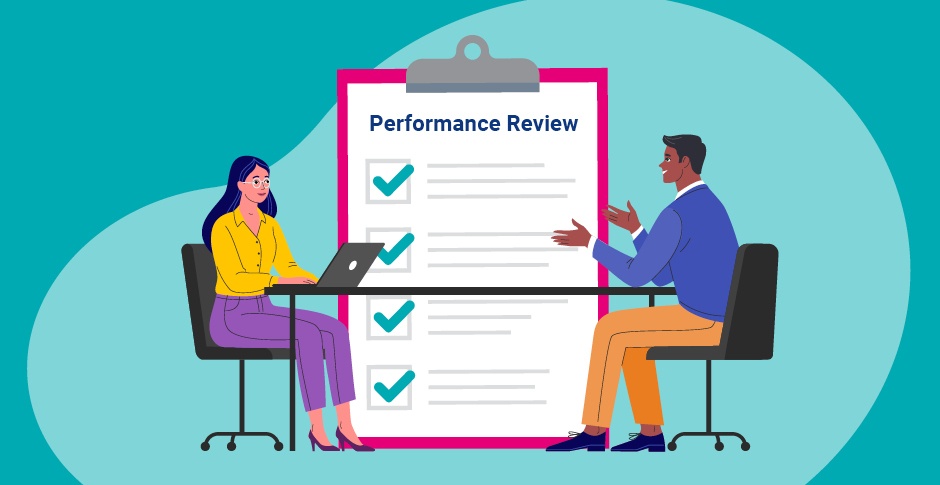How to maximise your next performance review
It’s that time of the year again: performance reviews. Maybe you’ve had a cracker of a year, maybe it’s been a challenging one.
CEO and founder of Taurus Marketing, Sharon Williams – a personal branding expert and employer for 27 years – says that it’s still “an employees’ market.”
There’s still a demand for top talent, and employees are able to negotiate higher salaries with more favourable conditions, knowing they could always walk away and find another career opportunity – or even multiple opportunities – by looking elsewhere.
While employees might have been more vulnerable in the past, she adds, now they can ask for things that wouldn’t have been on the table before, like working from home, working part-time or a higher salary.
These conditions have also made a huge difference when it comes to preparing for performance reviews. This is how you can put your best foot forward during your next one.
Engage in regular feedback
A survey conducted by SEEK revealed that 22% of respondents had been “blindsided” in a performance review. Of those, 44% received unexpected negative feedback, 35% did not receive an expected pay rise and 26% had KPIs they didn’t know about.
Leah Lambart, career coach and founder of Relaunch Me, says that the best way to avoid a surprise during a performance review is to “make a concerted effort to have regular feedback conversations with your boss.”
In most companies, the formal performance review is only held annually or bi-annually. Which means there is plenty of time in between reviews for things to go wrong for an employee. Fortunately, some companies are now seeing the benefit of continuous performance management and doing away with annual performance reviews altogether.
The same goes for salary conversations. “Don’t wait until your performance review to ask for a raise”, Lambart says. “Plant the seed early: set a specific meeting with your manager to give them the heads up that you want to discuss your performance and salary, focus on what you need to do to achieve the goal and document your progress.”
Prepare for your review
Alex Hattingh, Chief People Officer at HR management company Employment Hero, also believes that being proactive is key to driving your career forward.
“Ahead of your performance review, note down some specific points around your personal performance,” she says. “What have been your biggest achievements over the last 12 months? Be ready to explain what you did and talk through any relevant metrics around the impact of your work. Move away from listing out the responsibilities you’ve had and give your manager a picture of how successful you have been.”
Whether you’ve had a great year or a challenging one, doing these things can help you demonstrate everything you’ve achieved, what you’ve learnt and how you’ve grown.
Furthermore, conversations should always be a two-way street – highlighting how both parties stand to benefit from your performance.
“Businesses know their success is dependent on their best assets, their people. A good performance review process facilitates the growth of a company’s team by enhancing each individual’s motivation and engagement,” Hattingh says. “Performance reviews are ultimately about aligning individual goals to company goals. Showing team members how their efforts drive the company’s bottom-line, so they feel their work is a valuable part of the overall growth, is vital for boosting engagement and productivity.”
Highlight your contributions
When it comes to the conversation itself, career development expert Sue Ellson says there are some simple steps that will help you organise your thoughts and combat any nerves you might be feeling. For example:
“Acknowledge the support you have received from your employer throughout the pandemic, listing what you have appreciated and valued during the crisis,” she suggests. “Saying thank you is a great way to start.”
Ellson also recommends staying professional and doing what you can to self-regulate during the session.
“Do you need to leave your phone or watch outside the room to maintain 100% focussed? Do you need to take notes if you’re likely to become overwhelmed? Do you need to organise support during or after the review? Will you be ready to focus on what you have done well and not just any negatives?”
For Ellson, it’s best to face any difficulties head on. She suggests listing the challenges you have faced and how you have overcome them – taking care to highlight anything that is outside the scope of your regular duties. You can take this to the next level by making recommendations for improving business practices (based on what you’ve learnt), which will demonstrate your critical thinking and commitment to success.
Use performance reviews as a stepping stone
It’s also important to discuss how your performance fits within the company’s overall vision to ensure your contribution is aligned with its overall mission and purpose. For example, are there any big opportunities the company is keen to seize? Is it facing any big challenges? And what role do you – or can you – play in these scenarios?
A modern performance review can offer a great opportunity for you to sit down with your boss, get on the same page and set clear goals for your future. It’s not just about surviving the conversation, but actively participating and being proactive about where you want to go in your role.
Originally published on news.com.au, republished with permission.
Read more
